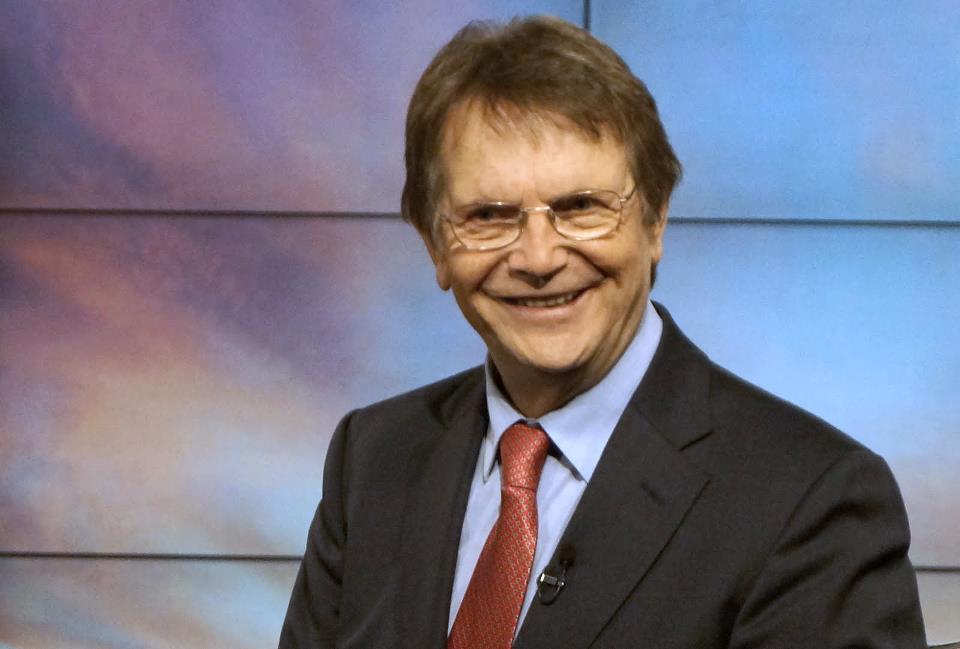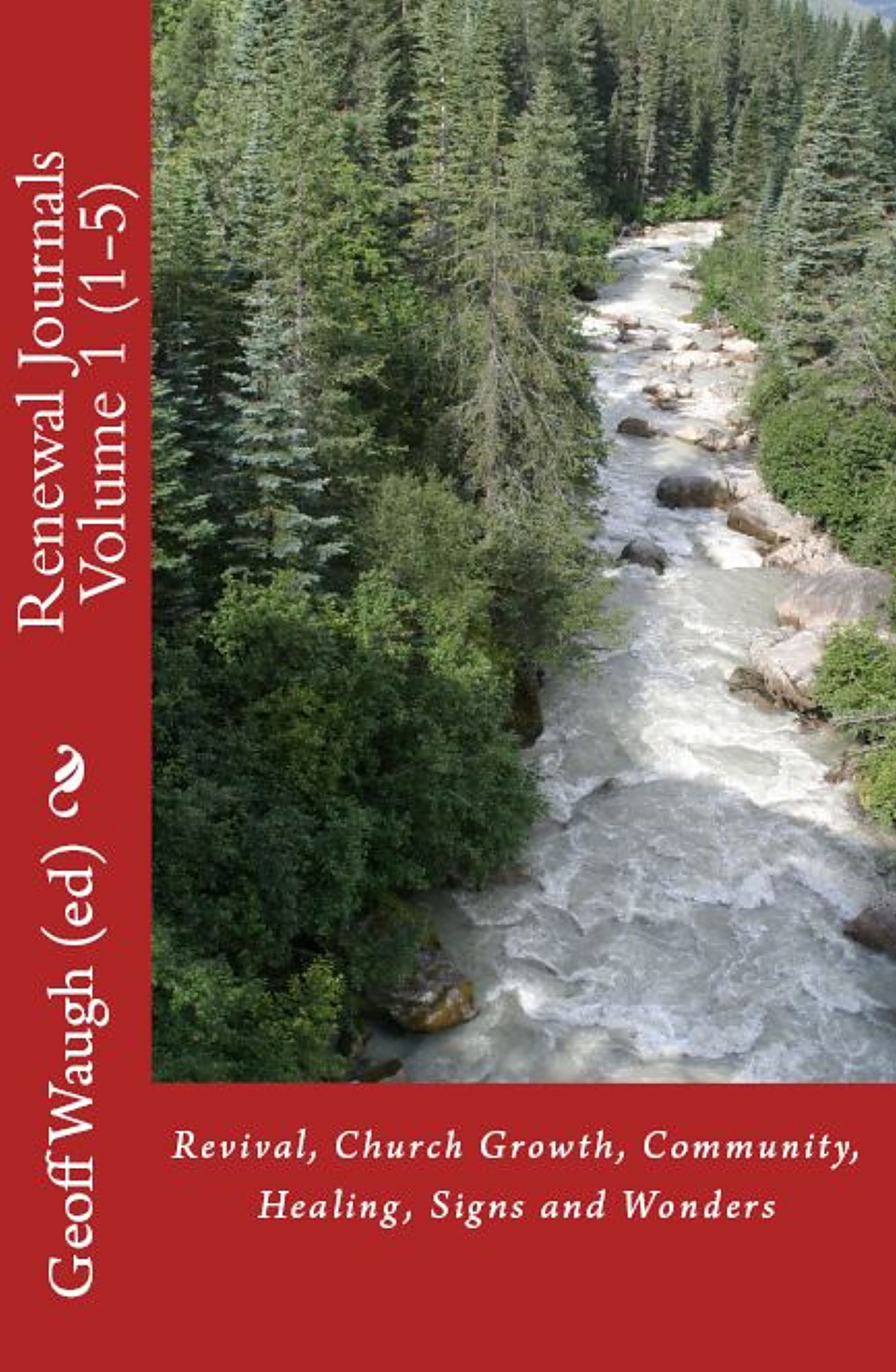
Words, Signs and Deeds
Brian Hathaway, an elder in a Brethren church in Auckland, and national principal of the Bible College of New Zealand, wrote of the journey towards integration in ministry.
Share good news – Share this page freely
Copy and share this link on your media, eg Facebook, Instagram, Emails:
Words, Signs, & Deeds, by Brian Hathaway:
https://renewaljournal.com/2011/05/19/words-signs-and-deeds-by-brian-hathaway/
Renewal Journal 5: Signs & Wonders:
https://renewaljournal.com/2014/12/02/signs-and-wonders/
An Article in Renewal Journal 5: Signs & Wonders – with more links
Renewal Journal 5: Signs and Wonders– PDF
Also in Renewal Journals bound volume 1 (Issues 1-5)
Renewal Journal Vol 1 (1-5) – PDF
_______________________________
Words announce the truth of God
Signs demonstrate the power of God
Deeds express the love of God
_______________________________
The Beginnings
Our congregation in West Auckland was formed in 1965 as an offshoot of a Brethren church in Auckland. In its early days it was very much a youth outreach. In the 1970’s we were impacted by the Charismatic Renewal that was going on in New Zealand. People in our congregation attended services and conferences, read books, listened to tapes and of course came back and discussed this in the church and home groups. Not surprisingly, this created a degree of conflict and tension in the congregation.
However, previous to these events God had brought us to an understanding of the importance of relationships in the church: the need to be honest, open and transparent with each other so that we could handle tensions. I’m grateful to God that he brought that to our attention first. It enabled us to handle more easily the pressures that the renewal brought to us.
I need to say that at no time in our history did we ever sit down and devise some sort of master plan for what has happened in our congregation. All we sought to do as an eldership was take the steps that God led us into. In Mark 4:24 Jesus says, ‘Consider carefully what you hear. With the measure you use, it will be measured to you and even more. Whoever has will be given more; whoever does not have, even what he has will be taken from him.’ It is crucial to understand that we must use what God gives us.
If God teaches us something, use it. Apply it. The measure we use whatever you apply, whatever you use, whatever you appropriate that will be measured back to you again and even more. This principle is fundamental in leadership. It’s about going forward individually and corporately; growing together personally and as a group; listening to God privately and collectively. We are on a pilgrimage. And that’s a community activity, as the New Testament sees it. A ‘walking with Jesus, and in the company of others’ (Fung). Our history has been an expression of a desire to follow God through a series of doors he’s opened to us.
With Charismatic Renewal occurring in many churches around our country, and people in the congregation becoming interested and involved, we clearly had to address the issue. In l978 the elders decided to spend the year talking about Charismatic Renewal together. What was it? Could we embrace it? Were there things we could learn from it? We spent one night a month talking, praying, reading papers, looking into the Scriptures discussing the matter and by October we had come to the unanimous conclusion that we could embrace two main features of the movement.
1. We concluded that each Christian needed an empowering work of the Holy Spirit. We did not want to argue over what to call this or whether it came at or after conversion. What we were concerned about was that people knew the Holy Spirit experientially not just in their head, or as theology.
2. We decided that we would be open to all the gifts of the Holy Spirit and seek to operate these gifts along Biblical guidelines. To us it did not seem consistent to believe that certain gifts ceased at the end of the first century.
Thus at the end of l978 there was a change in the elders’ attitude towards the work of the Spirit. A paper was presented to the Church outlining our conclusions, and then discussed thoroughly. The whole process evoked a very positive response from the congregation. People said that at last the elders knew where they were going. We didn’t really! We had started on a pilgrimage and we are still on a pilgrimage, taking steps of faith. I hope we will always do this. Not to do so is to wither and die.
In a nutshell I guess what we said was, ‘Lord, do anything you want to. With your help, from our Brethren foundation, we will seek to discover in practice what it means to follow your Spirit. We don’t want to be a Pentecostal church; neither do we want to copy Charismatic churches. We may go to them to receive insight, but we want this to be unique for us.’ Can’t the God who makes unique snowflakes also make unique congregations?
At the beginning of l979 the congregation started to grow very rapidly. Nothing had changed but our attitude towards the Holy Spirit. People became Christians in January. Unusual for New Zealand! God’s in the Northern Hemisphere over January; New Zealanders are at the beach! To see six adults converted in January was staggering; and it continued month after month.
Over the next ten years, as best as we can estimate, we saw about 1,000 people come to faith in Christ. As we look back on this, all we can say is that God saw our unity and change of attitude towards his Spirit and began to work in a new way among us.
New Directions
Within a year, God led us into penetrating the community. Normally when a church starts to grow, the first thing you think about is getting a fulltime pastor. God seemed to be saying to us, though, that we should think about our wider community first. So we approached a couple about this, and for eighteen months financially supported by the congregation they worked within the local community. Via newspapers, local groups and Government departments, they signalled availability to senior citizens, single parents and those who were sick. They cut hedges, mowed lawns, cleaned windows, provided transport.
Often after doing a job they would be invited in to have a cup of tea. The person helped would want to know how much they owed for the service provided. Hearing it was nothing would inevitably open up further discussion as to how and why this was possible. This would lead quite naturally to sharing about Christ. In eighteen months this couple led about 8 people into a totally new relationship with the Lord. We now realise that we had linked together social concern and evangelism.
From there a cluster of community ministries developed to begin to meet peoples’ needs within the community. We were also involved in overseas mission and most recently we have been engaged in church planting. Currently we have three congregations that are seeking to work together. Our premise here is that it is a little short sighted to form a new congregation and lock up all the resources of that congregation within itself. Our aim is to have congregations with their own responsible elderships inter relating, with a free flow of resources, people and training across congregations.
A co-ordinating group facilitates combined arrangements and there is recognition of visionary people who can maintain the bigger view. You will probably realise that this is not a Brethren pattern. Nor has it been easy to implement. In the past, new Brethren congregations fairly quickly isolated themselves from others or the birthing body to go their own, totally autonomous, way. We do not feel that this is a Biblical model. There seems to be a degree of liaison between the churches of the New Testament.
Thus our aim is to get the best of both worlds local elders committed to the establishment of work in the local area, while at the same time maintaining relationships between elders in each congregation to enable a free flow of resources.
For us, combined areas involve overseas missions, youth, equipping, about six combined celebrations a year, and elders retreats. Currently we are responsible for somewhere over 1000 adults and children across the three congregations.
As we look back on the steps that we have taken, we recognise that we have been seeking to integrate three major emphases. Onto our heritage of a conservative evangelical church we have sought to build the strengths of the Pentecostal/Charismatic streams of the Church and then the strengths of the social justice stream of the Church.
In endeavouring to interweave the strengths of these three movements we have also come to recognise their weaknesses. Let me sketch these quickly for you. I am indebted to Roger Forster from the Ichthus Fellowship, London, for some of these insights.
The Conservative/Evangelical Position
The first weakness we see in this position is the rather emasculated gospel of ‘souls’. Two things that were impressed on me in my younger days were the necessity of living a holy life and the need to save souls. I have discovered that these goals are not wrong but they are insufficient.
Another weakness of this position has been the tendency towards a bigoted, self righteous exclusiveness. I can remember in my Bible class days analysing the cults. We would discuss why the main world religions were wrong, why the Jehovah’s Witnesses were wrong, the Methodists, the Presbyterians…..! Let me, to be fair, say that I am talking about a conservative country assembly of 35 years ago. I also want to make it quite clear that I am very grateful for my Brethren heritage. I am not putting that down. I wouldn’t dare to. Its innate strengths, prayerful parents and many Brethren friends make any rejection of my origins impossible. And it is part of God’s good grace to me, anyway! I am just pointing out some of the weaknesses.
A further weakness for many conservative evangelicals has been the emphasis on personal piety at the expense of social concern or social issues. This has probably stemmed from, and been reinforced by, the idea of ‘coming out from among them and being separate’. This was a strong element of teaching in my youth. In practice it often meant no dances; and no cinemas. When my Dad played cricket for a local Club he was criticised not for playing on Sunday but for playing on Saturday. ‘You don’t do that. You might get caught up in their sinful habits!’ In Exclusive Brethren Assemblies such an attitude is taken to the extreme of not eating with people, not listening to radios, and blocking windows of churches so people cannot see into the buildings.
I do not want to criticise rather I would analyse. This is a far healthier approach as it invites us to work together on areas that create division and destabilise relationships.
The Pentecostal/Charismatic Position
A major weakness of this stream has been the lack of objectivity in assessing ‘results’ and an accompanying tendency towards extravagant claims. Objective assessment of healings may be seen as lack of faith and sometimes extravagant claims are made prematurely.
Another weakness here is what many would see as manipulation and guiltproducing techniques. Before an offering is taken up I have heard some preachers say, ‘If you give $10 to God he will multiply it tenfold.’ I have been in many Pentecostal services and I sometimes sense that the worship leader is trying to manipulate the congregation. Such activities are not what God requires. They worry me.
A further weakness is the personal indulgence, the selfinterest, the ‘Ime’ Christianity. This is not limited to Pentecostals and Charismatics, but is quite strongly reinforced in these groups, especially in Western nations. We see its extremes in Prosperity Teaching. ‘What’s in this for me?’ is often the motivation. Such an attitude is fed by our selfcentred society and our highly individualistic culture. Very often we Christians do not realise that this is happening to us.
The Liberal/Social Justice Position
The first weakness here is the failure to recognise the spiritual base of evil. Jesus clearly identified two kingdoms in conflict and he came to destroy the works of darkness. We’ll not overcome the kingdom of Satan or social injustice simply by using human force, ingenuity, education or organisation. I am not saying that such human activities are unnecessary or futile, but in themselves they are insufficient. Sin is at the root of social injustice and you can’t overcome sin in human systems solely by human endeavour. This tendency leads to an involvement in social justice dealing with fruits rather than roots.
The result of this is often tired, wornout people, overwhelmed by the needs of society. We have to ask questions about that. I do not question such peoples’ motivation. They are well meaning and very committed to relieving a hurting society. I am not saying that serving God is easy or that you won’t get tired. Of course not. None of us would. However I do sense a stress level in some of my Liberal Church friends who are very passionate about social needs in the community. I also see them often having great difficulty peopling their ministries.
If I were to juxtapose the liberal position with the classical evangelical position I’d say that Liberals go for improvement of life but ignore sin, whereas Evangelicals go for forgiving of sin but ignore life. E. Stanley Jones, speaking of this tension, says ‘the one preaches the Gospel of bodies without souls, while the other preaches the Gospel of souls without bodies. The first is a corpse and the second a ghost.’
Now let me now draw your attention to the great strengths in these three streams of the Church. It’s here that we can really learn from each other.
Words: living by the truth of God
The major strength of the Evangelical position is clearly its strong biblical base and emphasis on the need for a personal encounter with God through Jesus Christ. The commitment to Scripture as the basis for our Christian faith and the commitment to faith in God through Christ for salvation. I am glad for the heritage of my Biblical base. I’d not trade it for anything. I’m glad my children have it. In such an uncertain world it is a great foundation on which to build.
Signs: living in the power of God
The major strength of the Pentecostal/Charismatic position seems to be the emphasis on the practical experience of the empowering, gifting and leading of the Holy Spirit. I choose the words `practical experience’ carefully. In most of my Brethren upbringing we never got practical in this area. If we talked about the leading of the Spirit we never learned how actually to experience it. I remember one of our early New Zealand evangelists telling about being led by God in the 1930’s to visit a town not on his itinerary, to discover many people waiting to hear the Gospel. This same man later came out very strongly against Pentecostal and the charismatic movement in our country. Our denomination has closed off from this whole dimension for about 30 years.
The Holy Spirit to the average Pentecostal/Charismatic is more than a theology or set of ideas or verses. He is the dynamic source of their spiritual life and Christian activity. Most Pentecostals and Charismatics are so because of an identifiable encounter with the Holy Spirit often subsequent to their salvation experience/event. Many such encounters that I have observed are life changing and deeply motivating. Intoxication was the description used in Acts 2. For them, Christian faith moves away from a solely intellectual and rational appeal and touches the deepest regions of a person’s being. Often expressed in vibrant life, it can be very attractive to the nonChristian.
Much of our Brethren expression of our Christian faith (in New Zealand anyway) has been legal, rational and intellectual in its approach. Scripture assures us that ‘the letter kills; the Spirit gives life.’ To put the two dimensions of mind and spirit together is one of the greatest challenges facing Christians worldwide. I am very glad that our four children have been brought up in a church which understands this. They have seen people healed, they have experienced miraculous things, they have sensed the vibrancy and the expectancy of faith. They have all had a deep experience of God. We are glad about that. It has brought great strength to them.
I acknowledge that in this area there is also a danger of ‘froth and bubble’. Lack of depth or maturity which may lead to postpentecostals and postcharismatics (See Barratt, International Bulletin of Missionary Research, Vol. 12, No.3, July 1988).
Let me add that the Maori people have taught me a lot about sensitivity to the Holy Spirit. They are often very sensitive spiritually; sensitive to God and sensitive to the presence of demonic forces. It is those of us from a Western world view and I identify myself here in particular, coming as I do from a rational scientific background and a conservative Brethren heritage who have had particular struggles with aspects of the work of the Holy Spirit. This has been a great part of our pilgrimage over the past decade, seeking to discover this dimension and outwork it within the framework and guidelines of Scripture.
Within this major strength in the Pentecostal/Charismatic stream of the Church I have observed three further highlights. Each seems to have inherent strengths and weaknesses.
i. The evidence of spiritual gifts
Strength: The expectancy (faith) that the God of heaven is not dead, but loves to manifest his grace gifts among his people, is a characteristic feature of this `stream’ of the Christian church. I well remember a Saturday morning just over two years ago, when a group of about 40 young people from our congregation were waiting expectantly for a session to begin. We had invited a person with a prophetic gift to our congregations and I knew that he had never met any of these young people before. One by one he stood them before him and spoke what he sensed God was saying to him. The group laughed as he touched on personal character traits that they recognised. Some cried as he mentioned their deepest longings and encouraged them to follow closely as God led them on.
Time after time we were awed as he spoke of things that he could have had no previous knowledge of. To the young man in the process of closing a business and with very little else offering ‘You are having financial struggles but God is going to open up something new to you.’ And it happened within a few weeks. To a young woman who had just returned from working with drug addicts and prostitutes in New York ‘You have the underprivileged on your heart.’ To another whose family was going through deep waters ‘You have been grieving for your family and God has seen your great concern.’ To one of the ‘characters’ of the group ‘Come here stirrer!’ And so it went on. Clear insights that could only come from the Spirit of God. Those young people left the room that morning walking on air God had spoken to them directly.
That type of prophetic gifting operating in a church is very powerful. Over recent years we have sought to encourage people who have sensed God leading them in this way to use this gifting.
Weakness: People can get ‘hooked’ on the supernatural and may be unable to handle periods of struggle or suffering. Then there is also the problem of hyper-faith and presumption. When you get involved in praying for healing, make sure that you have a theology of nonhealing as well, because pastorally you will need it. I have no problem if people get healed; the problem is when they don’t.
ii. A heightened awareness of spiritual warfare and the need for prayer
Strength: The awareness of the spiritual dimension of life and the nature of the spiritual battle that is occurring on this planet are taken very seriously by most Pentecostals and Charismatics. Intercession is a word more commonly used by people of this stream of the Christian Church than by most of those in our Brethren assemblies.
Weakness: The danger of attributing everything to the devil and not recognising that much evil still lurks within the human soul.
iii. Dynamic music, worship and praise
Strength: There is little doubt that much of the best Christian music has come out of this stream of the Church over the past 30 years, inspired, they would claim, by the Holy Spirit. It’s very attractive especially to young people. Many of the melodies and words seem to touch people deeply, often producing an outpouring of genuine love and adoration to the Lord.
Weakness: Worship may degenerate into a form of mushy sentimentality which caters for the prevalent existential ethos of much of our current society. While I am discussing the Pentecostal, Charismatic and Third Wave (those who embrace the gifts and miraculous dimensions of the ministry of the Holy Spirit without wanting to be identified as Pentecostals or Charismatics) stream of the Church, let me remind you of its incredible growth over this century. From about 1% of the Christian Church at the commencement of 20th century to an estimated 30% by the end of the century. That’s somewhere in the vicinity of 600 million people. An incredibly significant increase by anybody’s reckoning! It has been noted that both the first century and the 20th century have been centuries of the Holy Spirit. Recent research reveals a correlation between the evidence of the supernatural power of God and Church growth, particularly in the two-thirds world countries.
Deeds: living out the love of God
Finally let me outline what I see as the great strength of the Liberal stream of the Church their passionate concern for social justice. Frequently their perspective on Scripture has ‘brought me up with a jolt’, as I have seen something of the passion of God’s own heart for justice and his desires for his people.
Put another way, its strength lies in the understanding that the gospel has implications beyond personal salvation. I have come to understand that God is committed to the salvation, the reconciliation and the redemption of the whole universe. The cross does not only address personal sin. Its implications are much bigger. Ultimately everything that sin has touched and spoiled, God wants back under his rule and authority. He has commissioned us to go down that track as far as we can.
Conclusion
One of the problems we human beings have is ignoring strengths when we find weaknesses in a position contrary to our beliefs. If I can find weaknesses, I will focus on them and use them to dismiss and undermine strengths in an alternative position that I should be examining. This happens in all areas of life. As a leadership we have tried to listen to and learn from the insights of other perspective of the Church . We have sought to integrate the strengths of our evangelical heritage with those of the Pentecostal/Charismatic stream and the Liberal stream of the Church. We still have a long way to go, with much to learn and embrace; but then I guess that’s what it means to be on a pilgrimage.
For the Evangelical the Gospel is most powerfully proclaimed by words; for the Pentecostal/Charismatic the declaration is most clearly emphasised in signs; for the Liberal the good news is most meaningfully expressed in deeds.
Words announce the truth of God. Signs demonstrate the power of God. Deeds express the love of God.
If we only have words, we compete with all the philosophies and the theories that are circulating in society and we compete poorly because often churches are poor at communication. If we only have deeds, we find we are competing with philanthropic agencies in our society and what difference do people in the community see between these and the Church? If we only have signs we end up competing with the demonic.
I believe that the key for the Church today is to integrate make one these three dimensions. Not to lose evangelism, for example, but to link it to the power of the Spirit flowing through social concern and bringing them together in a biblically holistic Gospel.
This is what it means to follow Jesus. He is both the Head and Source of our faith. He is also our example. In Luke 4:18 he could say ‘The Spirit of the Lord is upon me (pentecosta1/charismatic emphasis). He has anointed me (again the pentecostal/charismatic emphasis) to preach good news (evangelical focus) to the poor (Liberal emphasis), he has sent me to proclaim freedom to the prisoners (double emphasis announce; justice), recovery of sight to the blind (double emphasis announce; miraculous sign), to release the oppressed (triple emphasis announce; deed; identify with), and to proclaim the year of the Lord’s favour’ (again surely the triple emphasis).
In his second book, Luke reports Peter as saying to Cornelius: ‘You know the message that God sent the people of Israel telling the Good News of peace through Jesus Christ. How God anointed Jesus of Nazareth with the Holy Spirit and power. How he went around doing good deeds, healing all that were under the power of the devil, because God was with him’ (Acts 10:37-38).
Thus in the life of Christ we see the integration of these three dimensions. A commitment to words and truth; a commitment to signs and power, a commitment to deeds and love.
I believe it is God’s intention to raise up congregations all over Australia that embrace these three strands. Leaders are needed that seek to integrate them, struggle to maintain a healthy balance between them, and equip and release their people for them.
_______________________________________________________________
(c) Grid Autumn 1993, published by World Vision Australia, GPO Box 399C, Melbourne, Vic. 3001. Brian Hathaway has traced more fully the pilgrimage of the Te Atatu Bible Chapel in his book Beyond Renewal: The Kingdom of God (Word Publishing, 1990). Used with permission.
© Renewal Journal #5: Signs and Wonders, 1995, 2nd edition 2011
Reproduction is allowed with the copyright intact with the text.
Now available in updated book form (2nd edition 2011)
Renewal Journal 5: Signs and Wonders – with more links

Renewal Journal 5: Signs and Wonders – PDF
Renewal Journal 5: Signs & Wonders – Editorial
Words, Signs and Deeds, by Brian Hathaway
Uproar in the Church, by Derek Prince
A Season of New Beginnings, by John Wimber
Preparing for Revival Fire, by Jerry Steingard
How to Minister Like Jesus, by Bart Doornweerd
Renewal Blessings, Reflections from England
Renewal Blessings, Reflections from Australia
The Legacy of Hau Lian Kham, by Chin Khua Khai
Renewal Journal 5: Signs and Wonders – PDF
Contents of all Renewal Journals
Amazon – Renewal Journal 5: Signs and Wonders
Amazon – all journals and books
See Renewal Journal 5: Signs & Wonders as on Amazon and Kindle and The Book Depository.
Also in Renewal Journals bound volume 1 (Issues 1-5)
 Also in Renewal Journals, Bound Volume 1 (Issues 1-5)
Also in Renewal Journals, Bound Volume 1 (Issues 1-5)
Renewal Journal Vol 1 (1-5) – PDF
Paperback books and eBooks for PC, tablet, phone
Add to your free Cloud Library then download anytime
Amazon and Kindle and The Book Depository
All Renewal Journal Topics
1 Revival, 2 Church Growth, 3 Community, 4 Healing, 5 Signs & Wonders,
6 Worship, 7 Blessing, 8 Awakening, 9 Mission, 10 Evangelism,
11 Discipleship, 12 Harvest, 13 Ministry, 14 Anointing, 15 Wineskins,
16 Vision, 17 Unity, 18 Servant Leadership, 19 Church, 20 Life
See also:
YouTube Video – Viva Cristo Rey – prayer, healings, evangelism, food multiplied
Revival Blogs Links:
See also Revivals Index
See also Revival Blogs
See also Blogs Index 1: Revivals
Free PDF books on the Main Page

FREE SUBSCRIPTION: for new Blogs & free offers

Like this:
Like Loading...












































